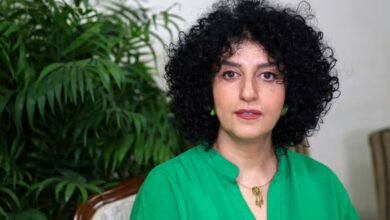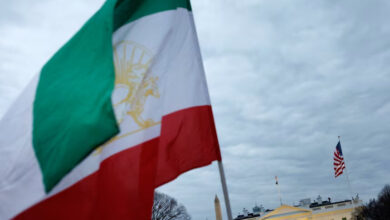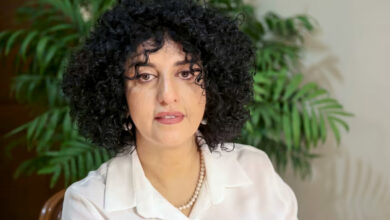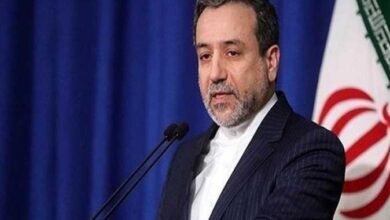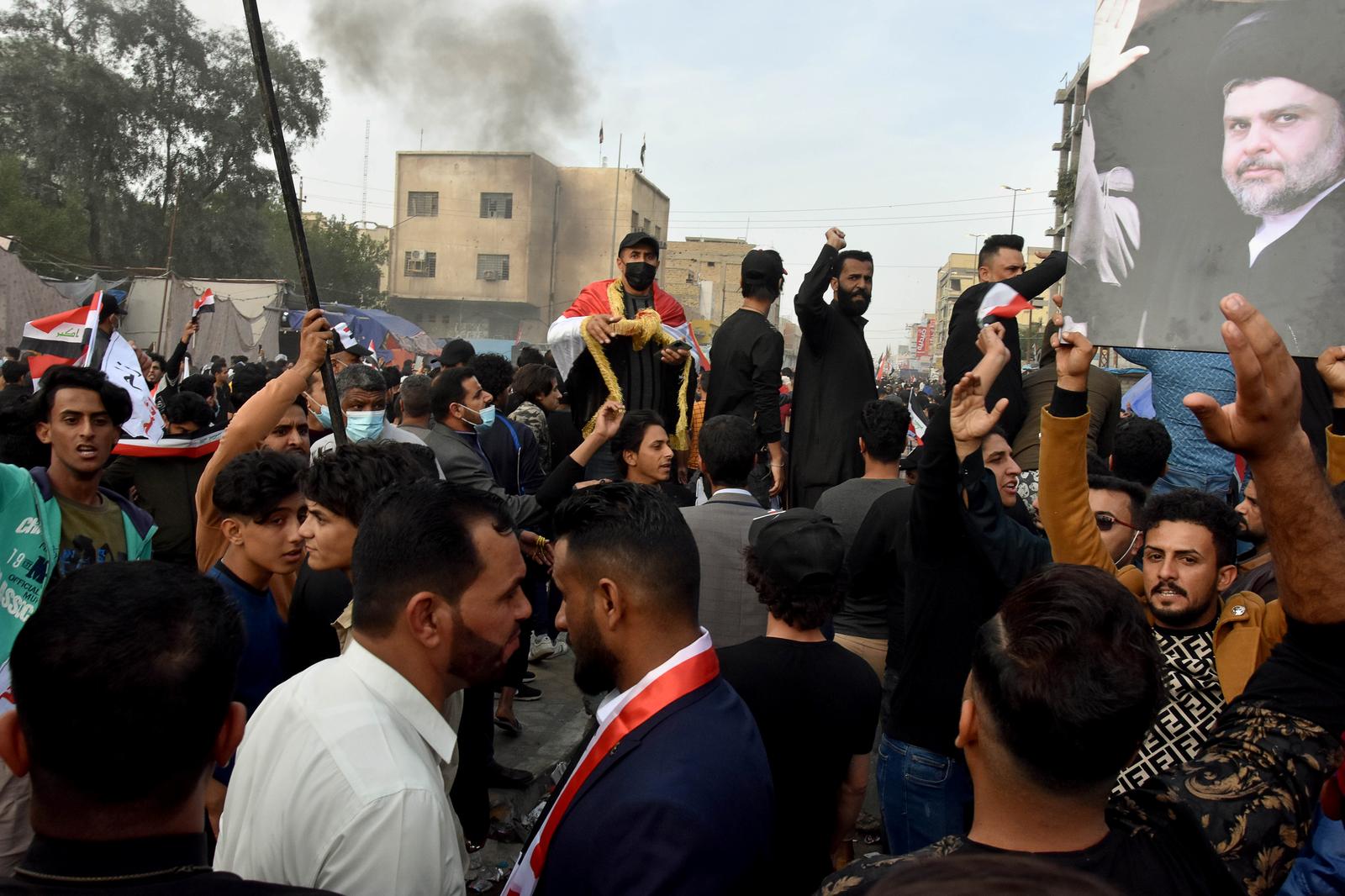
NASIRIYA, Iraq (Reuters) -Supporters of Shia cleric Moqtada al-Sadr stormed an anti-government protest camp in the southern Iraqi city of Nasiriya on Friday, and at least three people were killed and dozens wounded in the clashes, a Reuters witness and a medical source said.
Followers of Sadr carrying pictures of the cleric marched to the central al-Haboubi square, where anti-government protesters have held a sit-in since 2019, after Friday prayers.
They fired gunshots and threw petrol bombs at the protesters’ tents, leading the protesters to fight back, the Reuters witness said.
A hospital source said the protesters died from bullet wounds. The clashes were still going on on Friday evening.
Haboubi square, where one of the worst killings of demonstrators took place last year and the last major protest site, had been cleared on Friday night by Sadr supporters, Reuters witness said, another major blow to anti-government protests that have largely lost steam in recent months.
“Another massacre took place today… against the peaceful protesters using live ammunition. We ask the Sadrist movement and Sayyed Moqtada (al-Sadr) to stop this strife and stop their assaults against peaceful protesters,” anti-government protester Mohannad al-Mansour said.
Last month Iraqi security forces cleared out sit-in tents in Baghdad’s Tahrir square, which became a symbol of anti-government protests during months-long mass unrest last year.
Iraq’s biggest anti-government protests in decades broke out in October 2019 and continued for several months, with hundreds of thousands of Iraqis demanding jobs, services and the removal of the ruling elite, which they said was corrupt. Nearly 500 people were killed. The protests caused the resignation of Prime Minister Adel Abdul Mahdi.
Prime Minister Mustafa al-Kadhimi, who took office in May, has pledged to hold a parliamentary election, in line with a demand of many pro-democracy activists.
Earlier on Friday, thousands of Sadrists gathered in Tahrir Square in Baghdad and in other southern provinces to show support for the influential cleric ahead of the election scheduled for June next year.
Sadr, who leads the largest bloc in Iraq’s parliament, said he expects his movement to win a majority of seats.
Sadr, a long-time adversary of the United States, also opposes Iranian influence in Iraq.
Reporting by Reuters Baghdad newsroom; writing by Amina Ismail; Editing by Angus MacSwan, William Maclean

